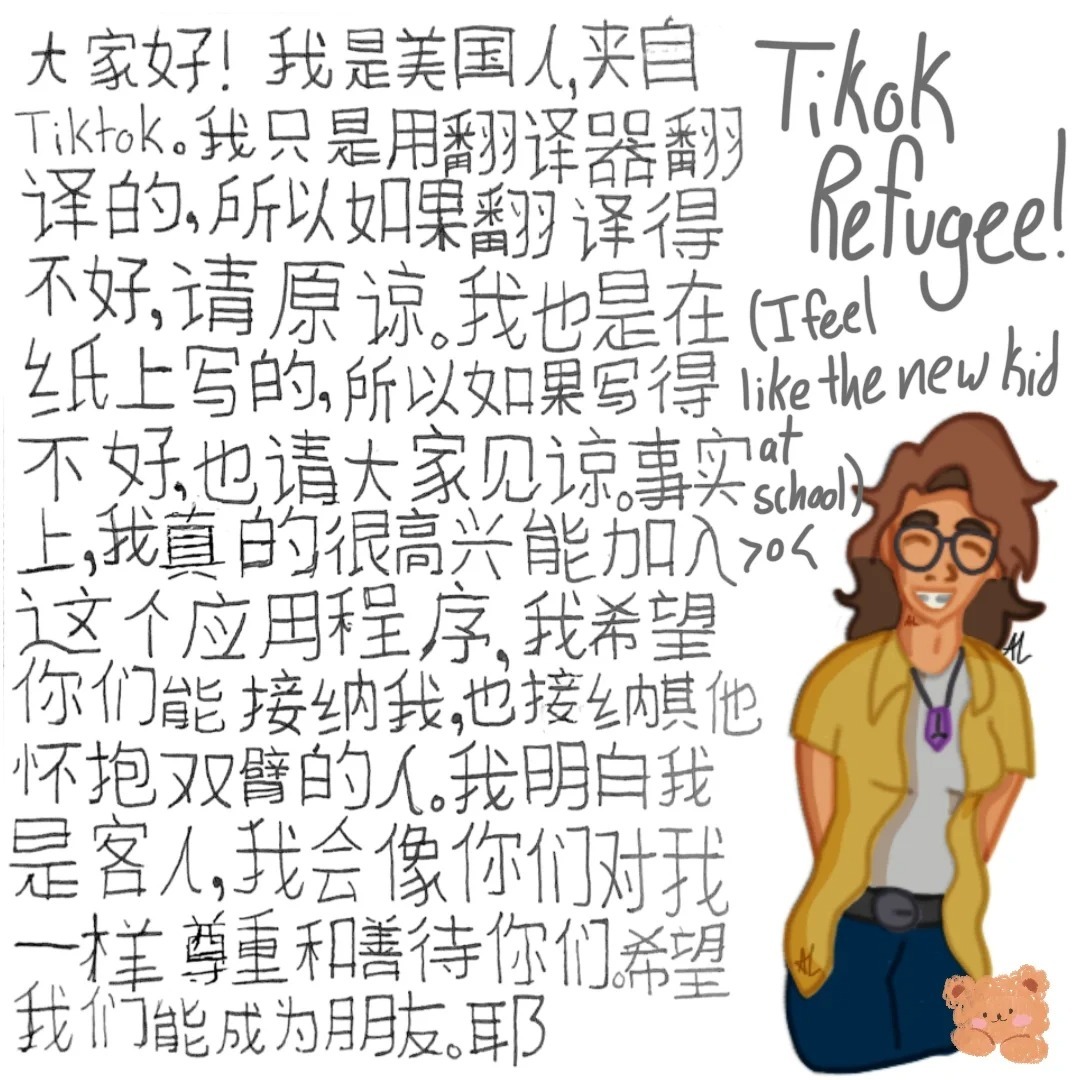After several days of growing momentum, TikTok refugees have propelled RedNote (aka Xiaohongshu), the Chinese app, to the top spot among free Apple App Store downloads worldwide.
On an app that has never been so bustling, the fusion of TikTok culture and the unique style of RedNote, combined with bilingual interactions, has given rise to countless memes and new cultural codes.
New to RedNote? Luckily, thousands of people have summarized steps for you to become a power user with a million followers.
Pay the tax — not the citizen tax, but sharing photos of cats/plants/houses — say “ni hao” from where you are, and then you will enjoy a boom in followers.
RedNote has long been a lifestyle sharing platform for Chinese speakers, and was unprepared to accommodate the sudden and massive influx of foreign users that have come in recent days. The app’s translation feature remains underdeveloped, inadvertently driving a surge in demand for Duolingo’s Chinese beginner lessons. With a 216% increase in Mandarin learners, Duolingo has taken the internet by storm, humorously claiming on Instagram that Duolingo’s owl mascot and RedNote are the most compatible pair.
As of this writing, it’s still easy to get attention on RedNote if you are a foreigner. Basic starting lines follow a format like this:
New Here :) I’m gonna try to translate everything to be more culturally open because I want to be. But it’s gonna be in Google Translate so, it might not be all accurate lol. A lot of times with rigid machine translation like: 新来的。我会尝试将一切变得更加文化开放,因为我想这样做。但它会出现在谷歌翻译中,所以它可能并不完全准确,哈哈。
Some Chinese users feel that their fellow netizens are being overly welcoming, prompting them to start posting sarcastic comments such as: Hi Chinese here. I’ve been learning Chinese for over 20 years and want some Chinese friends. Could you share some Chinese memes?
The influx of TikTok users onto RedNote, predominantly English-speaking and often unfamiliar with deeper aspects of Chinese culture, has disrupted the platform’s dynamic. For many overseas Chinese users, this shift feels like an intrusion into a previously intimate space for connecting with domestic trends and news.
The stark linguistic divide between English and Chinese speakers has turned interactions into surface-level exchanges, where individuals are often reduced to “scenery” rather than seen as people. This oversimplification, driven by language barriers, mirrors a form of “language nationalism” and reinforces uncomfortable reminders of white privilege in online spaces.
Meanwhile, Chinese RedNote users are noticing that the platform’s algorithm is becoming increasingly unfriendly to older generations, raising concerns about censorship.
Despite these challenges, it’s undeniable that the influx of TikTok users to RedNote presents a rare opportunity to challenge stereotypes and bridge the isolation of everyday internet users in China and the U.S. Ultimately, having a channel for communication is a net benefit for cultural interaction.
Banner Image via RedNote.















